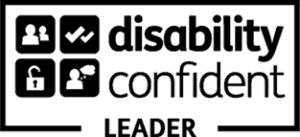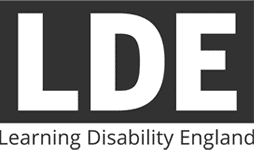Anne-Marie Glasby – Senior Development Officer, Changing Our Lives
Every time I hear the word complex in relation to people, I pull a face best expressed by the scowling emoji. This is becoming such a frequent event I am going to have to invest in a better moisturiser.
The word complex has been used in relation to disabled people for a long time but I’ve definitely noticed a shift over the last couple of years. These days it is not enough for someone to be ‘complex’. They must be ‘very complex’ or ‘extremely complex’ (added emphasis on the second syllable of extremely with the length of the syllable presumably corresponding to a sliding scale of complexity?!). I even hear the phrase ‘the most complex…’ (slightly hushed tone and slow nod of the head) in what is increasingly starting to feel like a competition.
‘Complex’ definitely feels like the new label on the block. Are you even a bona fide support provider or a trained professional if you’re not working with ‘complex’ people these days?
I hear the word in meetings and conversations with professionals and with support staff. I am never sure if it is meant to justify how hard they think their job is, bragging rights if you will, or to emphasise how little I clearly understand about the people they support.
I find labels problematic full stop but I have added issues with the label complex. What makes someone complex? What does it mean? Does it mean someone with multiple diagnoses or multiple other labels? Does it mean someone with multiple health issues? Does it mean someone with a difficult childhood and a long forensic history? Does it mean someone who responds to the world around them in a sensory way? I have heard all of the above people described as complex. The people I have met who have been given the label complex are as different as chalk and cheese. And yet, they are the same. They want to be connected to the people and world around them, they want people to understand what they are trying to say and they want good quality support to enable them to live an ordinary life, doing the things they enjoy, that help them to flourish, with people they love and care about.
I recently planned with someone in an in patient unit. They had been in hospital (medium secure) for a number of years and were described as ‘extremely (long second syllable) complex’. After spending time getting to know them and supporting them to put their plan together I was struck by how straightforward, how ‘un-complex’ their needs and wishes were. They wanted to bake and do crafts in their own home. They wanted to go to their local slimming group and get to know their neighbours. They wanted a small outside space (a yard or small garden) so they had somewhere to sit outside. They wanted to live somewhere relatively quiet, somewhere that was home and somewhere they felt safe. They wanted staff who were interested in them and who supported them to do the things they wanted. None of these things feel complex. Nor do they feel like too much to ask.
And what about the people who aren’t deemed to be complex? What are they? Straightforward? Easy? Or are they just easier to ‘fit in’? Easy to put into the boxes our health and social care is too often organised around? ‘Complex’ people don’t fit into boxes. They don’t fit into existing services. They need something ‘bespoke’ – another word that sets my teeth on edge and makes me yell, “ISN’T THIS WHAT PERSON-CENTRED CARE IS?”
I’m not denying that there are complexities in supporting some people and that very skilled support is required to enable some people to live in their own home, to be understood, to build relationships and connections in their community, to live the life they want to live.
But let’s put the emphasis there. Let’s change the narrative and focus on that higher level of skill and training. Let’s create and celebrate a workforce that can deliver excellent care. Let’s not burden people with yet another label.





